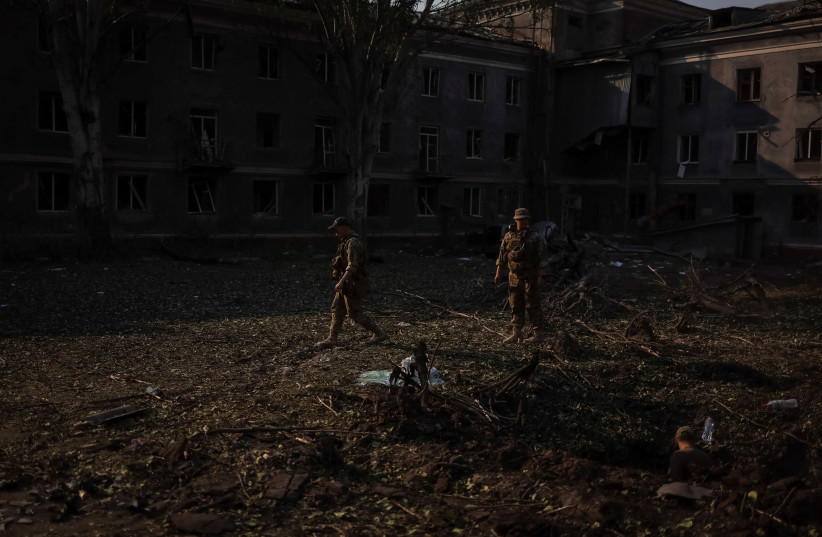Ukrainian refugees fleeing the ongoing Russian invasion may face issues with sicknesses and mental health issues that host countries need to look out for, and gaps in integrating them into national healthcare coverages need to be addressed, according to a new academic study.
The number of refugees fleeing the war is merely one of the many symptoms of global instability sparked by the ongoing Russia-Ukraine war.
The findings of this study, published in the peer-reviewed academic periodical CMAJ (Canadian Medical Association Journal), present an overview of the many considerations of Ukrainian refugee health and well-being, as well as gaps that need addressing.
<br>The Russia-Ukraine war and Ukrainian refugees
Since Russia launched its invasion of Ukraine on February 24, there have been a number of refugees seeking to flee the country. Most of these refugees are women, children and the elderly, as all men between the ages of 18 and 60 are required to fight in the ongoing effort to expel the Russian invaders.

And as the war has lengthened, with more clashes intensifying in the East and South and with Russian strikes hitting cities in the center and even western Ukraine, the need for Ukrainians to flee has risen as well.
As of last week, the United Nations (UN) Refugee Agency (UNHCR) noted that at least 12 million Ukrainians have fled their homes since the war began. Of these, over six million have left Ukraine itself for other countries.
So far, the largest number of refugees (1,518,394) have entered Russia, though this itself is due to highly controversial Russian policies of opening evacuation corridors exclusively into Russian territory.
But most Ukrainians flee into neighboring Poland, where over four million refugees have crossed the border and where at least 1,207,650 have stayed.
Several tens of thousands have also been seen in nearby Moldova, Romania, Hungary and Slovakia, with a few thousand also in Russia-aligned Belarus.
Hundreds of thousands have also gone to Germany, the Czech Republic, Turkey, Italy and Spain, with hundreds of thousands more distributed in countries throughout Europe, and some have gone to other countries such as Israel, Canada and more.
What considerations are there for Ukrainian refugees?
The study presents a couple of issues, specifically focusing on the situation in Canada.
According to the study, Ukrainian refugees often have high rates of tobacco use and there is a high prevalence of chronic illnesses like diabetes and cardiovascular disease. All of these are things host countries need to look out for.
In addition, there is the problem of mental illnesses. According to the study, 33% of Ukrainians already had mental illnesses. But the ongoing conflict and refugee crisis may have made it worse. As such, it is important to find ways to help them with these mental health issues.
In addition, Ukraine had its own issues before the war. As one of the poorest countries in Europe, Ukraine often saw a lack of access to vaccines. This is very evident with COVID-19, with just over a third (34%) of Ukraine's population being fully vaccinated. However, this is also true with other diseases that can be prevented with the use of vaccines.
In 2017 and 2020, Ukraine experienced nationwide measles outbreaks, with a polio outbreak also being reported in 2021. There were plans to do a polio vaccine campaign in February, but the war put a stop to it.
Considering how dangerous and infectious these diseases can be, it is important for countries taking in refugees to consider vaccine rollouts for them.
Other concerns are diseases frequently seen in Ukraine. One of these is tuberculosis, specifically drug-resistant TB and multi-drug resistant TB. The disease is a major health problem in Ukraine, which has previously had the second-highest number of TB cases in Europe.
Considering this, it is important for countries to be on the lookout for possible tuberculosis cases and make sure to treat anyone who has contracted it. This is especially important with those suffering from multidrug-resistant TB, as the treatment is longer, more expensive and less tolerated than other types.
Other diseases to look out for are HIV and hepatitis. HIV is five times more prevalent in Ukraine than in Canada, with hepatitis C being six times more prevalent and hepatitis B being almost 14 times more prevalent.
To combat these issues, it is important for countries hosting refugees to monitor these possible sicknesses and help refugees navigate healthcare systems.
